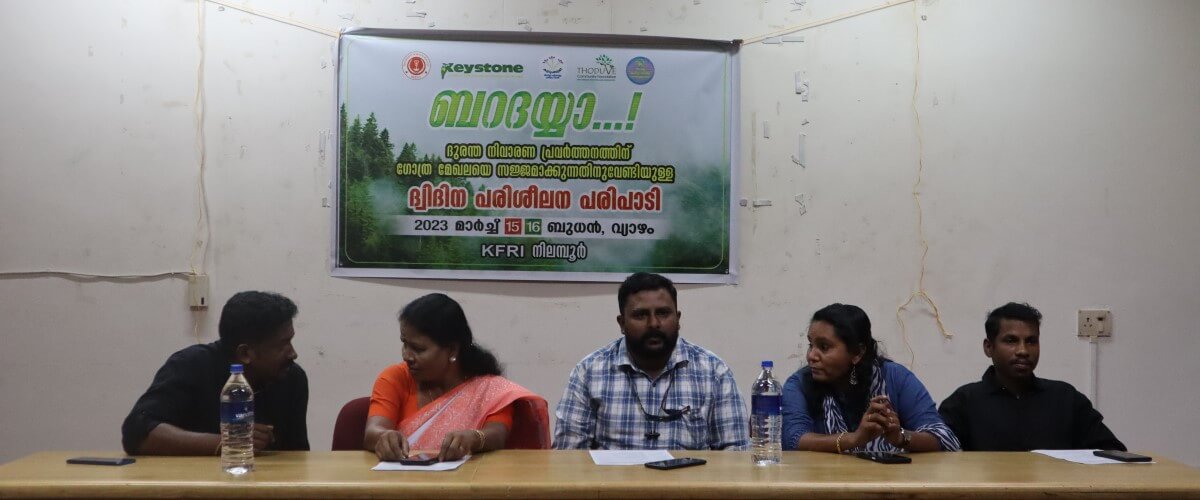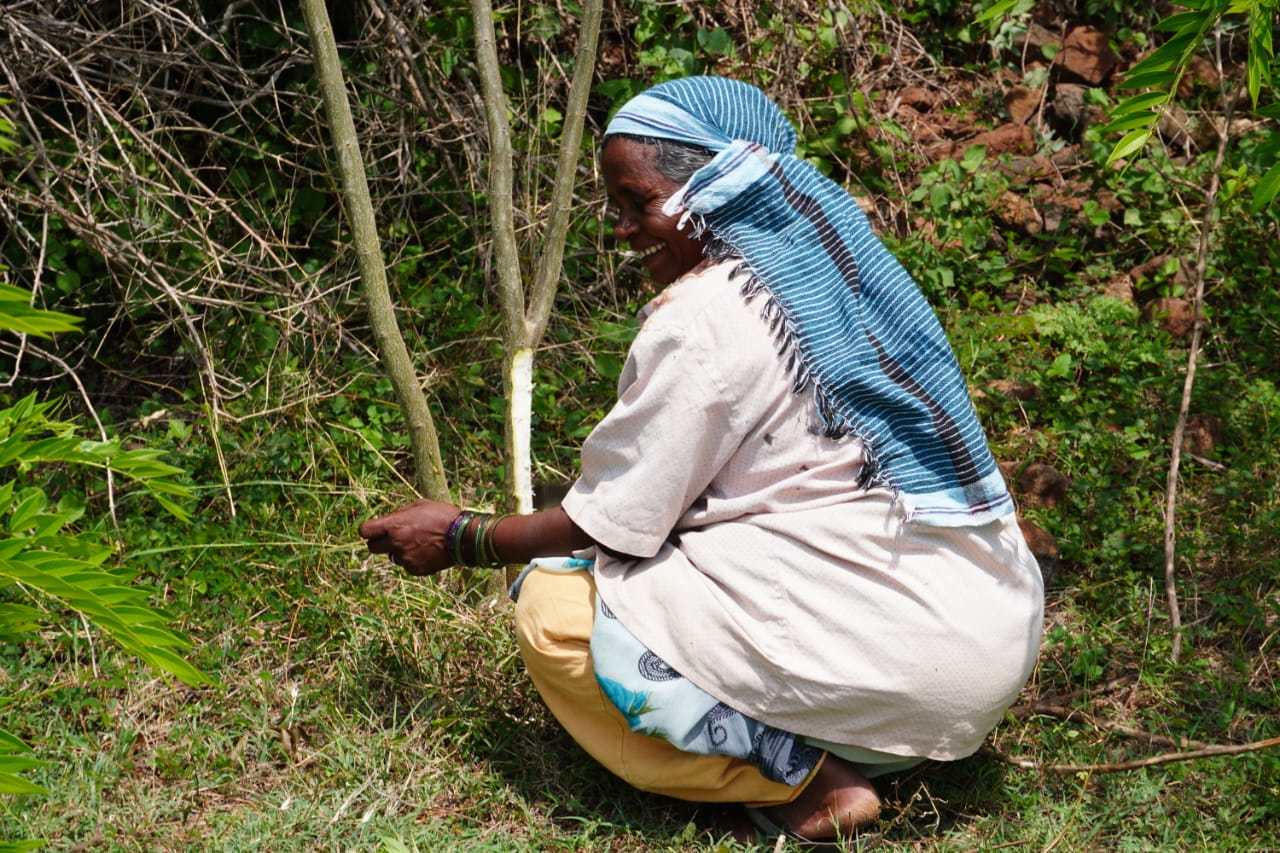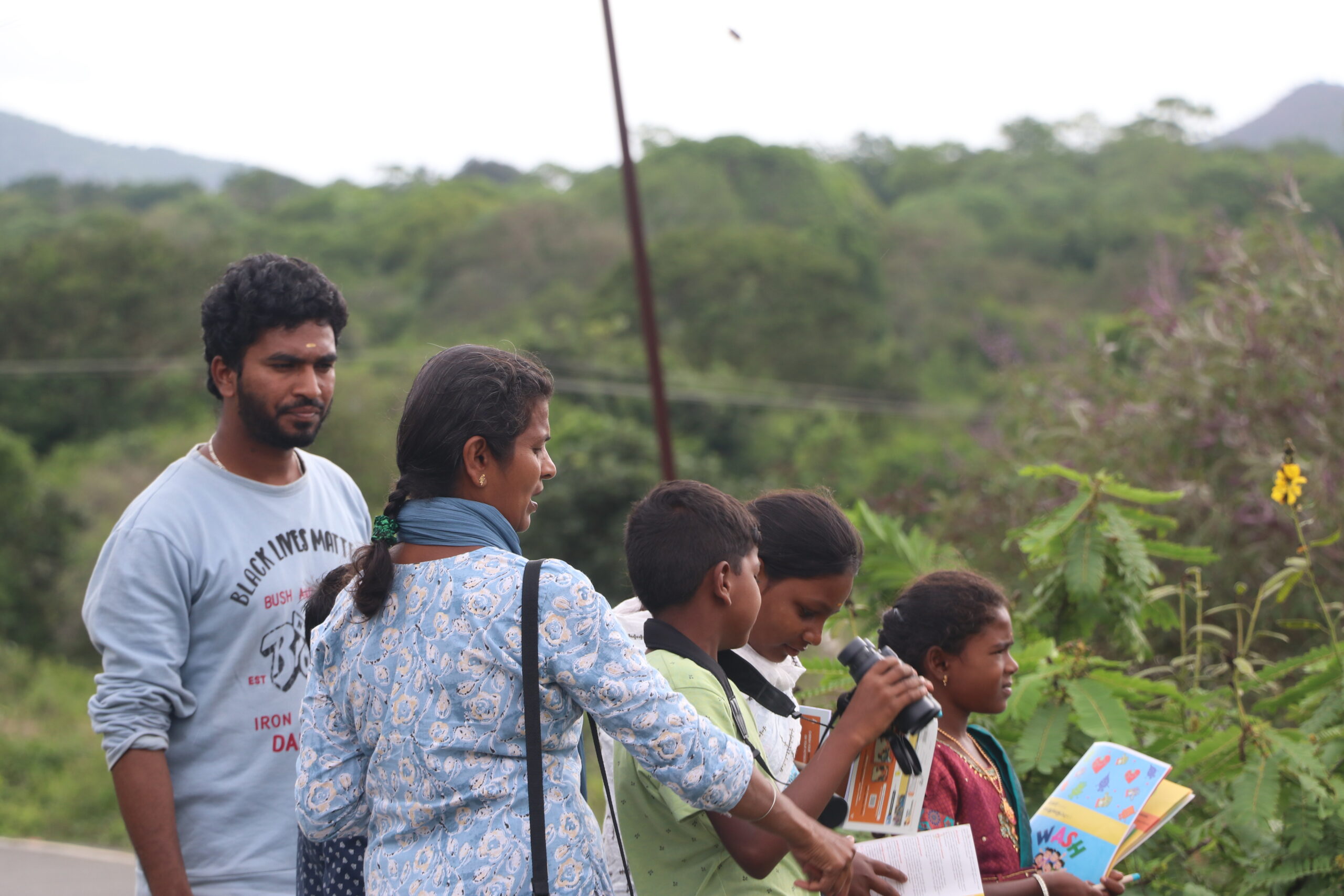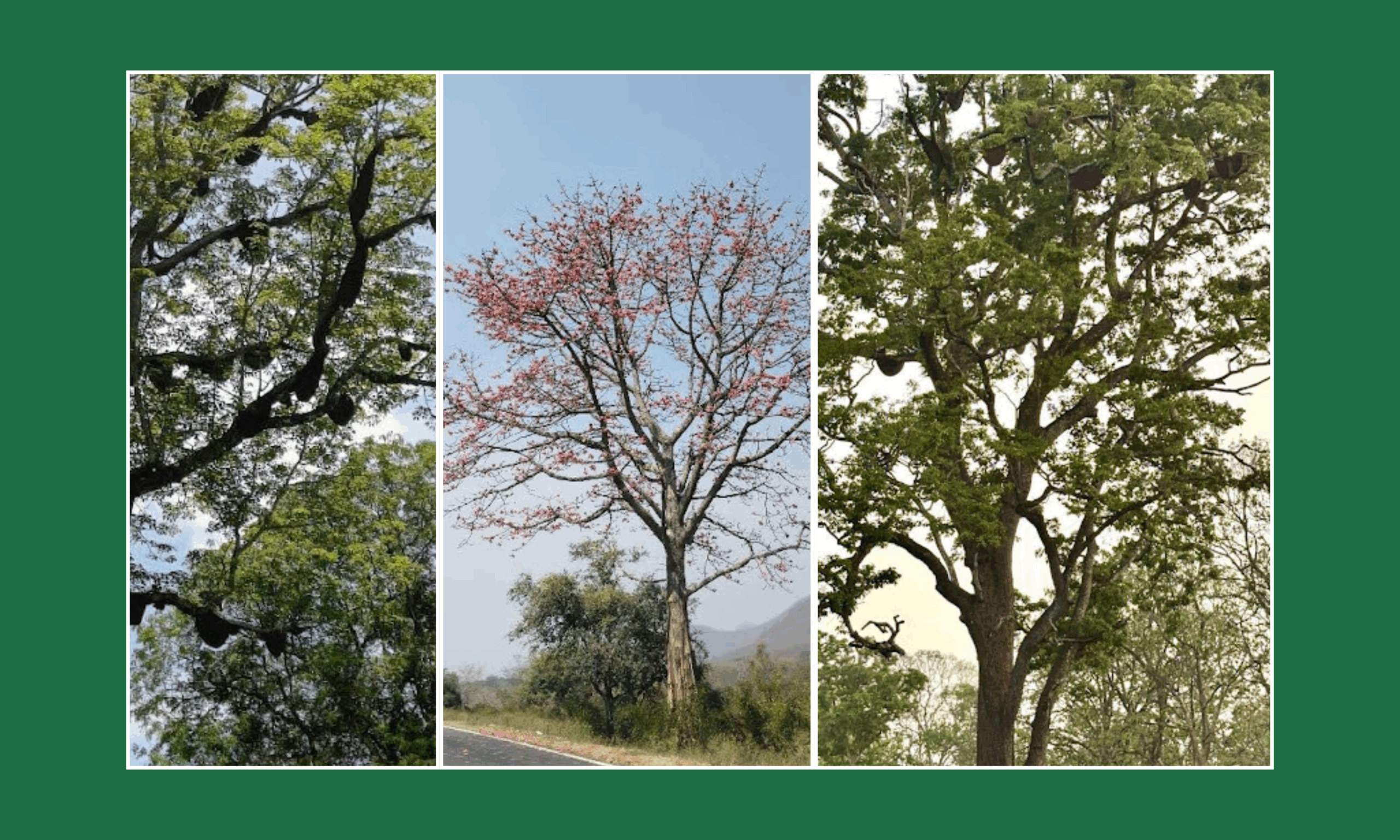March 16, 2023
By Faseela V. & Syamjith Palakkayam
Project Implementation Coordinator, Community Wellbeing & Consultant, People & Nature Collectives
Keystone’s Nilambur team, in collaboration with local organisations Thoduve Foundation, Tribal Mobile Health and Kudumbasree, organised our first ever disaster preparedness workshop for local and tribal groups that were invited from within the folds of the Amarambalam Wildlife Sanctuary. Several vehicles arranged by Keystone ensured people living as far as 50 km. away could attend the training. Tribal settlements whose representatives participated in the workshop included 60 participants from 32 villages, including the tribal settlements of Palakkayam, Mundakadavu, Pulimunda, Appankappu, Nedumkayam, Vettilakuli and Ambumala, along with local Nilambur residents who are work as field staff with Keystone, about 20 staff and members (locals) of Kudumbasree.
The speakers included Sunilkumar, Field Coordinator at Keystone & Chairman at the Nilambur Municipality; Pushpavalli, Nilambur Block Panchayat President; P. Vishnu, an officer at the local police station; Sulekha from ITDP Nilambur; Muhammed Shanu from Kudumbasree; M. Sina from Kerala Mahila Samakhya Society and Lakshmi Babu from Adivasi Forum, Malappuram. With a mix of theory, discussions and live demonstrations, the speakers enlightened the audience about important immediate responses to natural disasters like floods – which are quite common in this landscape with rising climate change coupled with unchecked urbanisation – as well as first aid administration in situations of emergency like drowning, bone fractures, skull injuries, loss of consciousness, choking, breathlessness, venomous snake bites and more. The participants learned how to carry unconsciousness people, to administer CPR and other general action steps.
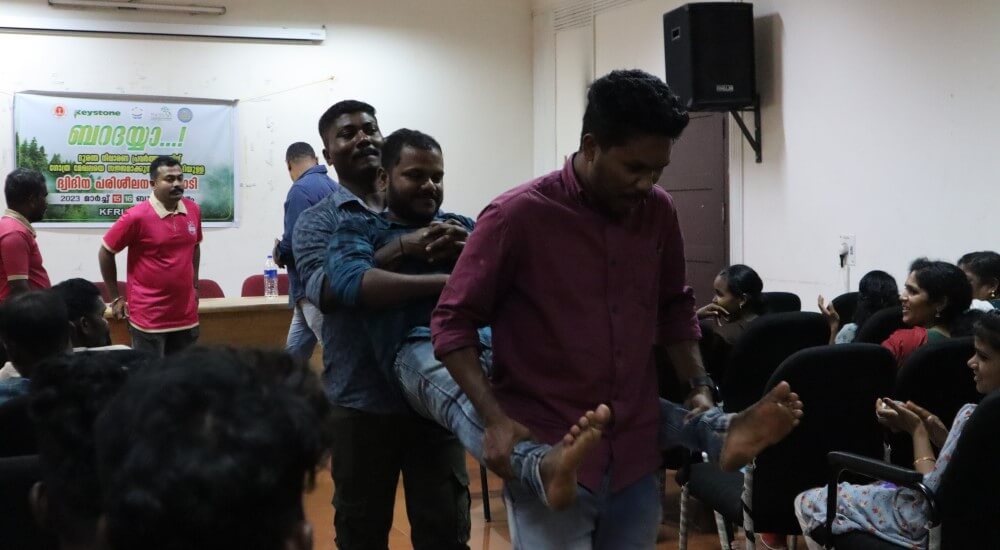
On Day 2, officials from the Forest Department were invited to dive into the very important topic of wildfires. As we venture into the dry summer season, the frequency of wildfires in forests continues to rise rapidly, especially with farmers often burning patches to clear the way for cattle grazing. During this time, it is paramount to equip forest dwelling communities with the right information to respond to uncontrolled fires that can threaten their homes and lives.

